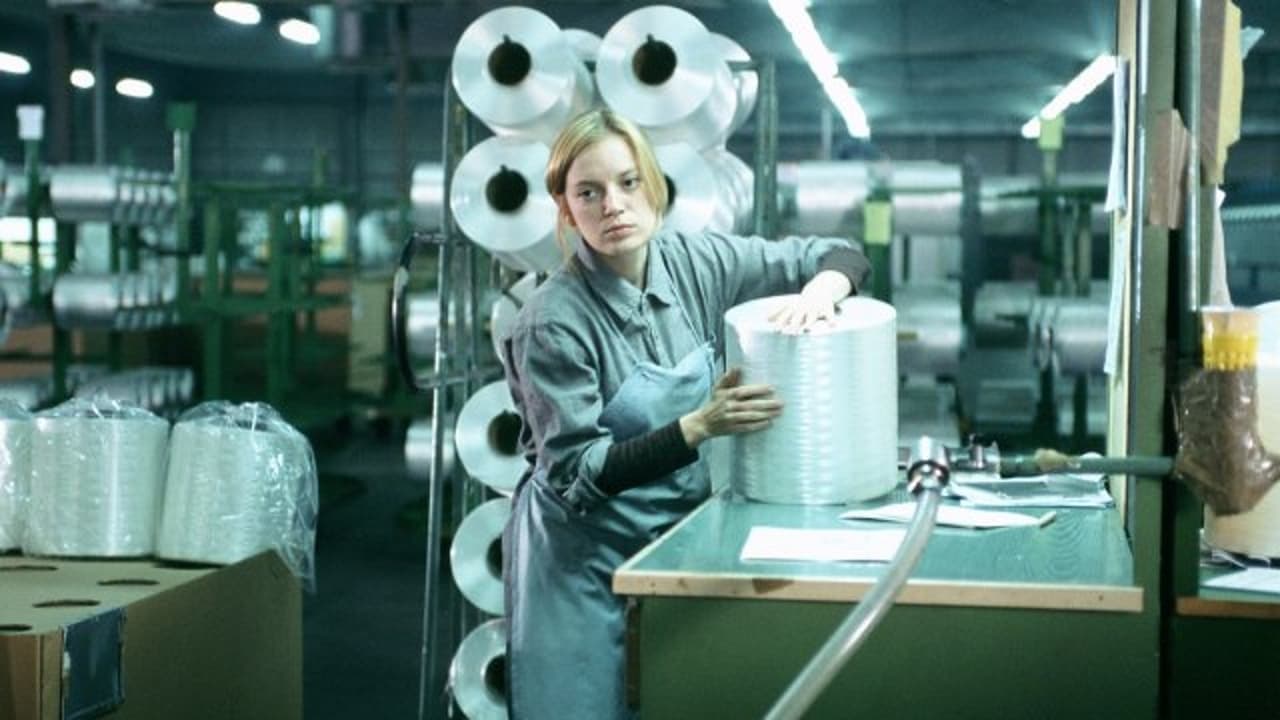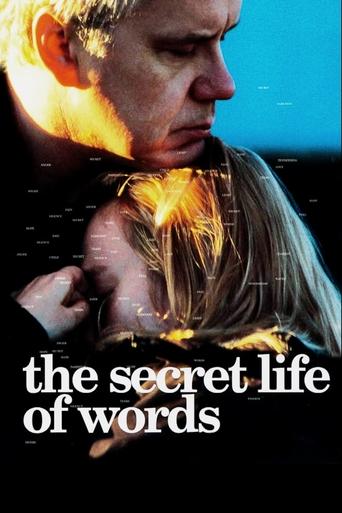Karry
Best movie of this year hands down!
Stoutor
It's not great by any means, but it's a pretty good movie that didn't leave me filled with regret for investing time in it.
SeeQuant
Blending excellent reporting and strong storytelling, this is a disturbing film truly stranger than fiction
ActuallyGlimmer
The best films of this genre always show a path and provide a takeaway for being a better person.
magnuslhad
Hanna is a serious, slightly dour young woman from Eastern Europe working in a factory in the British Isles. She works diligently, and keeps herself to herself, which somehow brings her unwanted attention. You get the feeling her actions have provoked the very response she was trying to avoid. Forced to take a vacation, she happens to overhear a phone conversation that leads to her nursing a burn victim on an oil rig. This fairly forced set-up sets the tone for a narrative that takes a lyrical approach to people living small, desperate lives in an extreme, desolate location. The motivations for everyone being there are uniformly opaque. The interactions mostly serve one purpose, to show that Anna is cut off from people and carries some tragic secret. As we get this in the first five minutes, the film is mostly static from that point on till that 'secret' is revealed. Sarah Polley does a great job as the taciturn Anna, but the film as a whole fails to support the weight of the revelation that Anna eventually offers up. The story she tells is powerful, but the characters who decorate the oil rig plot till then are flimsy and do not incite curiosity. Also, as the tragic secret is revealed all in monologue, it seems almost anti-cinematic, with only Tim Robbins emoting in reaction shots offering any visual texture or depth. Some heavy-duty actors turn up to play bit parts, including Eddie Marsan and Julie Christie. The gravitas of the theme merits their presence, but the execution of the story does not. We all have secrets, and some of us carry greater burdens than others. These are fascinating concepts for art cinema to explore, but despite some fine acting talent putting in impressive performances, The Secret Life of Words does not do them justice.
SnoopyStyle
Hanna (Sarah Polley) is a refugee working at a factory. She wears a hearing aid and is haunted by her past. After four years of non-stop work, her boss forces her to take a month off for vacation. She calls Inge (Julie Christie) but she refuses to talk to her. She overhears Victor talking about needing a nurse. She takes the job on the North Sea oil rig caring for worker Josef (Tim Robbins) who was blinded by the fire that shut down the rig.It seems unrealistic that Josef doesn't get airlifted to a hospital right away. There are some excuses but that's what that is. There is a shocking reveal about Hanna's experience. It is definitely a shocking tale and the two great actors land that big scene. There is nobody better than these two actors but this story feels too constructed and manipulative.
Claudio Carvalho
In Ireland, the introspective deaf worker Hanna (Sarah Polley) is forced to take vacations by her boss after four years service in a factory. She travels, but when she overhears a phone conversation in a restaurant, she offers to nurse a burned worker with fractures and temporarily blind in a decommissioned oil rig. Joseph (Tim Robbins) seriously wounded after risking his life to rescue a colleague that committed suicide jumping in a fire and need to stay for a while in the platform to stabilize his health condition. Hanna is a lonely woman, with the paranoid behavior of eating white rice, chicken nuggets and apple everyday and never repeating the soap, and she slowly interacts with the few workers first, opening her heart to Joseph later and disclosing her traumatic experience in her old country."The Secret Life of Words" is a touching and heartbreaking romance, with an awesome screenplay and wonderful performances of Sarah Polley and Tim Robbins. The dramatic story develops perfectly the characters and in spite of the happy-end, it is never corny. The sensitive direction of Isabel Coixet, from the stunning "My Life Without Me" with the same Sarah Polley, is top-notch again. The process of re-socialization of Hanna, who was dead inside and reborn after meeting Joseph, is intense. My vote is eight.Title (Brazil): "A Vida Secreta das Palavras" ("The Secret Life of Words")
bandw
In the opening scenes we are introduced to Hanna, a young woman working at a mindless assembly line job at a company called PoliSilk. Hanna is closed off, or has closed herself off, from most social contact. Her apartment is stark, consistent with our initial impressions. From her accent we know she is a foreigner living in an English speaking country. We think that she may merely be depressed, but we sense something deeper. Whether you will like this film will depend to a great extent whether people like Hanna arouse your curiosity or whether you disregard them. But the quiet ones are often the most interesting, still water runs deep as is said. It's a challenge to get to know such people and their stories. This challenge of getting to know Hanna is the central driving force of the movie. Hanna is so regimented that, in spite of her excellent work ethic, she has made her coworkers uncomfortable to the extent that they have made complaints to her manager who suggests that she take a month of vacation. She does that, but does not go far. It was never clear to me where she was coming from or where she wound up on vacation, but England and Ireland was my best guess. Hanna brings her solitude with her on vacation - a vacation for her seems like a punishment rather than a joy. While eating out she overhears a conversation in a restaurant that a nurse is needed to tend to a man who has been burned in an off-shore oil rig accident. She volunteers her services and is flown by helicopter to the rig. At first we don't know if she is faking it, but it becomes clear that she is an accomplished nurse. Why she is not employed as such is not mentioned - English labor laws?The conversations between Hanna and her patient, Josef, constitute the substance of the film. In the presence of each other the stories of Hanna and Josef exfoliate in an intensely absorbing way. If you are not engaged by people talking about themselves and telling stories then, if you have made it to this part of the movie, you will probably bail out. These scenes between Josef and Hanna are what make the title so appropriate. It is interesting how much we come to know one another simply by the words we speak to each other. Rather unnerving when you think about it.A movie based primarily on words has to have a good screenplay, and this is the case here. But a good screenplay does not guarantee a good movie, so it is fortunate that all aspects of this effort are high quality. As Hanna, Sara Polley is fantastically good. She is more than up to task of portraying the subtle transformations in Hanna's personality and delivers a heartrending climatic scene. And, as Josef, Tim Robbins has material that draws out his best.Most of us have not spent time on an off-shore oil rig, so getting some insight into what life is like in such an environment is interesting. The rig provides great backdrops for many scenes. If this were a stage play, the set designer would be receiving high praise.(spoilers ahead) Julie Christie's didactic speech toward the end flags this as a movie with a message. The point she makes about genocides being soon forgotten by all but the victims is not as true as she makes it out to be. She quotes Hitler as having said that the Armenian Genocide was forgotten within thirty years, but that is not true. The topic is still discussed and debated. In fact there has been much written on this and there is an article on it in the current issue of "The New Yorker" magazine (09-Sep-2007). And the Holocaust is still much in our minds. A central point is that witness should be given to the horrors of war, in particular to the inevitable consequences of wars to perpetrate deep and ineradicable scars on the innocent. I wish there had been more specifics about Hanna's story. Since she mentions having studied nursing in Dubrovnik, I assume she is a Croat and has been a victim in the Bosnian War in the 1990s. But maybe the lack of detail is meant to generalize the message to apply to any war. This movie did cause me to do a little research on the Bosnian War, but unfortunately any non-trivial understanding of that war appears to require major study - maybe another reason specifics were left out. One is led to contemplate the idea that it is important to remember the atrocities of the past. I sometimes wonder what is accomplished by that other than to make most people feel bad. To what advantage is it to me or society that I have seen footage of Nazis bulldozing piles of naked human bodies into trenches in concentration camps? After the Holocaust there was the idea that genocide should never be allowed to happen again. Have the memories of the Holocaust aided in the worldwide response to the genocide in Darfur? Perhaps so, but the response has not been one of overwhelming world outrage and willingness to help end it. Does a movie like "The Secret Life of Words" make us more conscious of genocidal wars and contribute to their prevention? Is there any way to blunt the hatred that precipitates such wars, a hatred that originates in the darkest parts of the human soul? Perhaps my having been made to think about such questions is a testament to the success of this movie?

